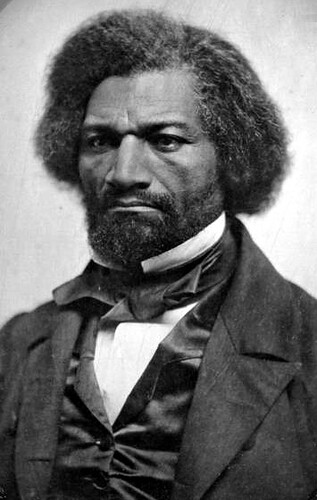Black History Month with Go Big Read
In his epigraph to the 2022-2023 Go Big Read selection How the Word is Passed, Clint Smith quotes from Frederick Douglass’ “The Nation’s Problem.”
“Our past was slavery,” writes Douglass. “We cannot recur to it with any sense of complacency or composure. The history of it is a revelation of stripes, a revelation of agony.”

Smith’s How the Word is Passed takes up this problem of confronting “complacency or composure” in how the history of slavery is taught across the nation, and how institutions enable or resist this legacy of agony. February, as Black History Month, encourages a similar reckoning. This month, the UW-Madison campus has a series of events that place particular emphasis on how creative expression can generate connection and reflection to respond to these legacies.
Part of these events includes the Chazen Museum’s re:mancipation exhibition, which works in conversation with last semester’s Sifting & Reckoning exhibit through the Public History project. Programming for the re:manicipation exhibit has also included an audio performance of Richard Hellesen’s Necessary Sacrifices, which follows two documented encounters between Abraham Lincoln and Frederick Douglass. Together, these works collectively consider the role of art in responding to the nation’s history of agony and resistance.
In addition to being the author of this year’s Go Big Read book, Smith is also the instructor for the Black American History crash course. Like How the Word is Passed, this online course looks back on the role of specific national sites in Black History and the legacy of the transatlantic slave trade in America. The course also emphasizes the impact of Black American innovators, including those in the fields of literature and the arts. Black History Month offers a reminder of how these interconnected histories, of both pain and revelation, have always run side-by-side in America.

How the Word is Passed suggests that narrative is a co-creative process, where the past is iteratively re-written and re-told with different perspectives and intentions. The history explored in Smith’s online course, and the UW-Madison campus Black History Month events, similarly encourage ways of responding to Douglass’ invocation to resist “complacency or composure” and confront national trauma through co-creative acts. The Go Big Read program thrives through these interdisciplinary, cross-campus conversations around the promise and potential of narrative to recur and respond.
By: Elise Kerns
Go Big Read Graduate Assistant